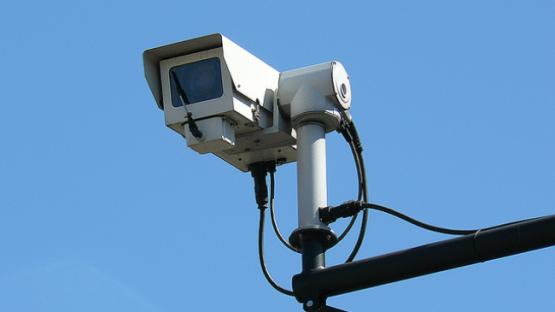The manufacture of 'surveillance by consent'

It's not often that you get to witness the birth of a new philosophy. However, according to the UK Home Office, a new philosophy is at the heart of their new Surveillance Camera Code of Practice, published this month, and currently subject to a badly publicized consultation process. The name of this new philosophy? Surveillance by Consent.
An extended version of this piece is available on the No CCTV website.
Of course, the term is not really new, nor is it a philosophy. Rather, it is more like a piece of propaganda, a means of assuaging fears about increased surveillance. Surveillance, we are told, is by consent. We need not worry how consent is achieved or what it really means. We can rest easy knowing that the word "surveillance", which was previously considered controversial, now has a positive sounding partner: consent.
The "surveillance by consent" slogan has been attributed to Andrew Rennison, an ex-policeman who is now both the Surveillance Camera Commissioner and the Forensic Science Regulator. In constructing the slogan, Rennison drew from the twelve guiding principles of the recently published Surveillance Camera Code of Practice. Of course, the twelve guiding principles are a re-working of the fourteen golden rules created as part of an Independent Police Complaints Commission (IPCC) review of the police use of automatic number plate recognition (ANPR) cameras. Those fourteen golden rules of the IPCC were broadly based on the eight Data Protection Principles that make up the Data Protection Act 1998, which is the statute that governs the use of CCTV and ANPR cameras. The new Code of Practice, therefore is really a re-stating of previous similar instruments.
The government introduced this new code to purportedly "further regulate" CCTV. However, the Code does little more than repeat existing regulations. Moreover, the Code does not advance in any way the discussion around whether intrusive CCTV measures should be used at all. Rather than questioning the application of CCTV, the Code simply creates rules for its "proper use".
Furthermore, it in fact advances the deterioration of protections that were already in place. The earliest form of code of practice for CCTV was a code published by the Local Government Information Unit, which stated: "No sound should be recorded in public spaces".1 Now new Surveillance Cameras Code of Practice states: "Any proposed deployment that includes audio recording in a public place is likely to require a strong justification of necessity to establish its proportionality".2 We have moved from a clear prohibition, to a vague statement that justifies its permissibility.
Consent and Choice
As with "policing by consent" there is very little about actual consent in the principles used to create "surveillance by consent". Real consent would require a meaningful debate about whether the meagre benefits of cameras are really worth sacrificing hard-won freedoms. Consent would require the public to be well informed about the harm that cameras do to communities and about the dangers of unquestioning acceptance of every new surveillance technology. Consent would require there to be an actual choice; yet all the mainstream political parties support the indiscriminate use of surveillance cameras, and the use of the national Automatic Number Plate Recognition (ANPR) camera network that has created automated checkpoints across the country. When politicians debate CCTV it almost always descends into an infantile squabble over who is more supportive of CCTV the most.3
Real choice demands a wider assessment of both existing and new surveillance technologies. Neil Postman, author of Technopoly, suggested six questions4 to assist in understanding how a technology intrudes itself into a culture. Such questions should be the starting point of any discussion regarding surveillance technology:
- What is the problem to which this technology is the solution?
- Whose problem is it?
- What new problems might be created by solving the original problem
- Which people and what institutions will be most seriously harmed by this new technology?
- What changes in language are being forced by these new technologies?
- What sort of people and institutions gain special economic and political power from this new technology?
Without seeking the real answers to these questions we will constantly be vulnerable to claims that upgrades to surveillance tools are needed, and that the upgrades are required to tackle a pressing need or a growing threat. As a result, we remain blind to where our society is headed. In his book 'The Technological Society', French sociologist Jacques Ellul, referring to the indiscriminate nature of police technology, warned: "The techniques of the police, which are developing at an extremely rapid tempo, have at their necessary end the transformation of the entire nation into a concentration camp."5
With the publication of the Westminster government's draft Surveillance Cameras Code of Practice a trojan horse has been snuck into every public space in England and Wales - and hidden inside is "surveillance by consent".
If you believe that consent is something that should be given voluntarily and not something that can be taken by bureaucratic thieves in the night then make your voice heard. If you live in England or Wales then start by telling the Home Office what you think (details of how to respond are below). If you live elsewhere in the world - watch out, "surveillance by consent" is no doubt coming to your country soon. If you do nothing, your inaction will be taken as your consent to be surveilled.
Surveillance Camera Code of Practice Consultation links
Download the consultation document.
Download the proposed Code of Practice.
Submit your responses online, or send them to: Home Office, Police Transparency Unit, 6th Floor Fry, 2 Marsham Street, London, SW1P 4DF